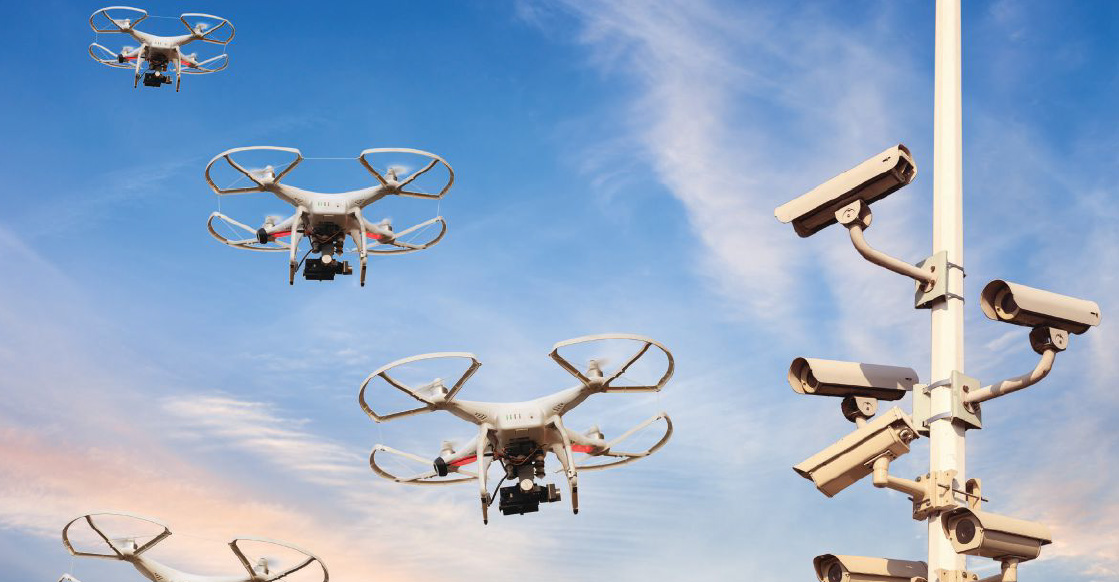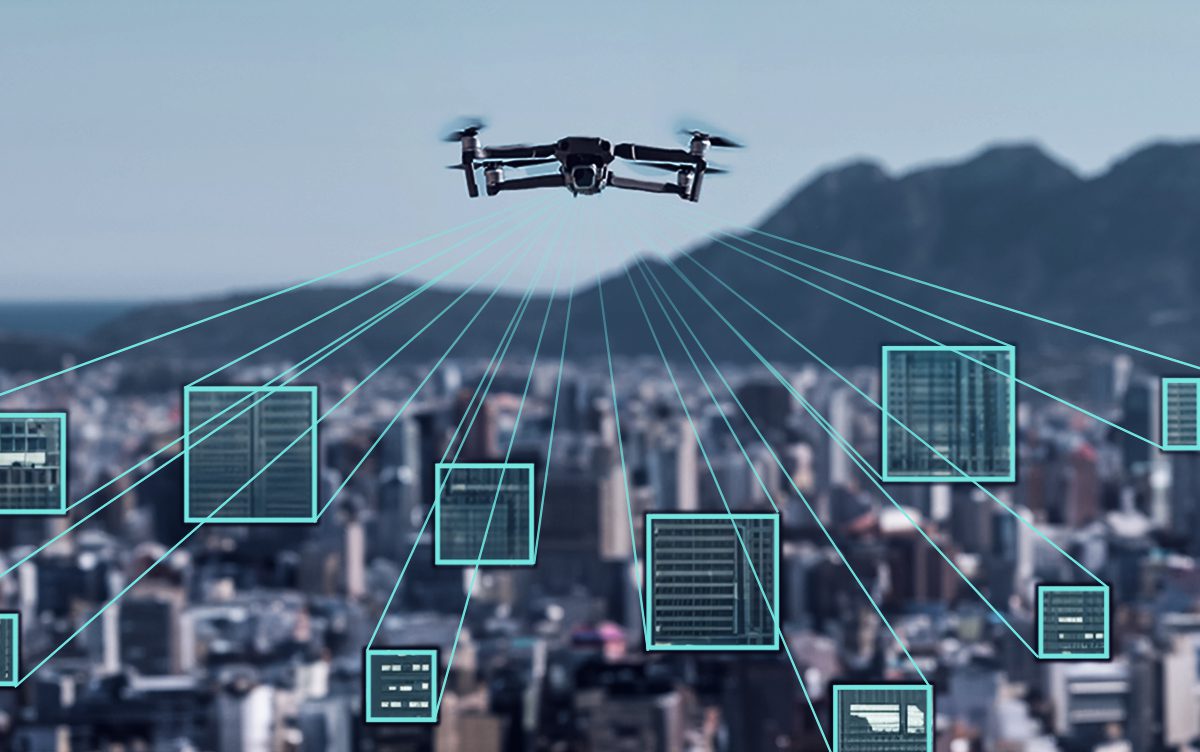ARTICLES
- HOME
- -
- ARTICLES
Enhancing Security Services: Unleashing the Power of Drone Technology
.png)
As the world becomes increasingly complex and interconnected, the demand for robust security solutions has never been greater. In this ever-evolving landscape, one technology has emerged as a game-changer: drones. Unmanned Aerial Vehicles (UAVs), commonly known as drones, have revolutionized the way we approach security and surveillance. In this article, we will explore the transformative impact of drone technology on the security industry, delving into its advantages, applications, and the future of this innovative approach to safeguarding our communities.
Advantages of Using Drones in Security:
-
Enhanced Surveillance and Monitoring: Drones equipped with high-resolution cameras and advanced sensors can provide a bird's-eye view of a given area, enabling security professionals to monitor and respond to potential threats more efficiently. Their ability to cover vast areas and access hard-to-reach locations makes them invaluable assets in security operations.
-
Improved Situational Awareness: Drones can gather real-time data and deliver it to decision-makers, allowing for a more comprehensive understanding of a situation and enabling faster and more informed responses. This enhanced situational awareness can be a game-changer in critical security scenarios.
-
Cost-Effective Solutions: Compared to traditional security methods, such as manned patrols or fixed surveillance systems, drones can offer a more cost-effective solution for security services. Their versatility and ability to cover large areas can lead to significant cost savings in the long run.
-
Increased Efficiency and Responsiveness: Drones can be deployed quickly and efficiently, allowing security teams to respond to incidents more rapidly. Their agility and ability to access hard-to-reach areas can be invaluable in emergency situations.
-
Enhanced Safety for Security Personnel: By utilizing drones for high-risk or hazardous tasks, security personnel can be kept out of harm's way, reducing the potential for injuries or casualties.
Applications of Drones in Security Services:
-
Perimeter Monitoring and Intrusion Detection: Drones can be used to patrol and monitor the perimeters of facilities, construction sites, or other sensitive areas, alerting security teams to any unauthorized access or suspicious activity.
-
Search and Rescue Operations: Drones can be instrumental in search and rescue missions, scanning large areas and providing real-time aerial footage to aid in locating and assisting individuals in distress.
-
Crowd Monitoring and Event Security: Drones can be deployed to monitor large crowds during events, festivals, or protests, helping to identify potential security risks and assist in crowd management.
-
Infrastructure Inspection and Maintenance: Drones can be used to inspect and monitor critical infrastructure, such as bridges, power lines, or pipelines, identifying potential issues or damages that may require attention.
-
Disaster Response and Emergency Management: In the aftermath of natural disasters or other emergencies, drones can be used to assess the extent of the damage, identify affected areas, and assist in coordinating relief efforts.
Case Studies of Successful Drone Integration in Security:

-
Airport Security Enhancement: A major international airport implemented a drone-based security system to enhance perimeter monitoring and detect potential intruders. The use of drones led to a significant reduction in security breaches and improved overall airport safety.
-
Improved Crowd Management at Large Events: A city's law enforcement agency utilized drones to monitor and manage crowds during a large annual festival. The real-time aerial footage provided by the drones enabled the security team to quickly identify and respond to any potential issues, ensuring a safe and successful event.
-
Effective Disaster Response and Recovery: Following a devastating hurricane, a state's emergency management agency deployed drones to assess the extent of the damage, identify affected areas, and coordinate relief efforts. The aerial data gathered by the drones proved invaluable in the recovery and rebuilding process.
Regulations and Legal Considerations for Using Drones in Security:
The integration of drones in security services is subject to various regulations and legal considerations that must be carefully navigated. Factors such as airspace restrictions, privacy concerns, and data protection laws vary across different jurisdictions and must be thoroughly understood and complied with. Security professionals must stay up-to-date with the evolving regulatory landscape and ensure that their drone operations adhere to all applicable laws and guidelines.
Challenges and Limitations of Using Drones in Security:
-
Technological Limitations: Drones, like any technology, have inherent limitations, such as battery life, range, and payload capacity, which can impact their operational capabilities and effectiveness in certain security scenarios.
-
Cybersecurity Vulnerabilities: As with any connected device, drones can be vulnerable to cyber threats, such as hacking or data breaches, which can compromise the security and integrity of the information they gather.
-
Environmental Factors: Weather conditions, such as strong winds, heavy rain, or fog, can affect the performance and reliability of drone operations, potentially limiting their usefulness in certain security applications.
-
Public Perception and Privacy Concerns: The use of drones in security services can raise concerns about privacy and civil liberties, which must be addressed through transparent policies and public engagement.
Future Trends and Advancements in Drone Technology for Security Services:
As the security industry continues to evolve, we can expect to see remarkable advancements in drone technology that will further enhance its capabilities and applications. Some of the anticipated future trends include:
-
Autonomous and Intelligent Drones: Drones equipped with advanced artificial intelligence and machine learning algorithms will be able to make autonomous decisions, adapt to changing situations, and provide even more comprehensive security solutions.
-
Increased Endurance and Range: Improvements in battery technology and propulsion systems will lead to drones with extended flight times and the ability to cover larger areas, expanding their operational reach.
-
Sensor and Payload Integration: The integration of cutting-edge sensors, such as thermal imaging, infrared cameras, and advanced detection systems, will provide security professionals with an even more comprehensive suite of tools to monitor and respond to threats.
-
Swarm Robotics: The development of drone swarm technology, where multiple drones work together as a coordinated unit, will enable more sophisticated and efficient security operations.
-
Seamless Integration with Other Technologies: Drones will increasingly be integrated with other security technologies, such as facial recognition, license plate readers, and data analytics, creating a more holistic and intelligent security ecosystem.
Training and Certification for Drone Operators in Security:
As the use of drones in security services becomes more widespread, the importance of proper training and certification for drone operators cannot be overstated. Security professionals must undergo rigorous training programs that cover topics such as drone operation, flight planning, airspace regulations, and data management. Obtaining the necessary certifications and licenses will ensure that drone operators are equipped with the knowledge and skills to safely and effectively integrate drones into their security protocols.
Cost Considerations and Return on Investment for Implementing Drones in Security:
Implementing drone technology in security services requires an initial investment, but the long-term benefits and cost savings can be significant. Factors such as reduced personnel costs, improved efficiency, and enhanced security capabilities must be weighed against the upfront costs of acquiring and maintaining the drones, training operators, and ensuring compliance with regulations. A thorough cost-benefit analysis can help security organizations determine the optimal approach to integrating drones into their operations and maximize the return on their investment.
Conclusion: The Future of Security Services with Drone Technology
As we have explored, drone technology has the power to revolutionize the security industry, offering a multitude of advantages and transformative applications. By embracing this innovative technology, security professionals can enhance their capabilities, improve efficiency, and better protect the communities they serve. While there are challenges and considerations to address, the potential of drones to reshape the future of security services is undeniable.
To learn more about how drone technology can enhance your security services, contact our team of experts today. We'll work with you to develop a tailored solution that meets your unique needs and helps you stay ahead of the curve.




